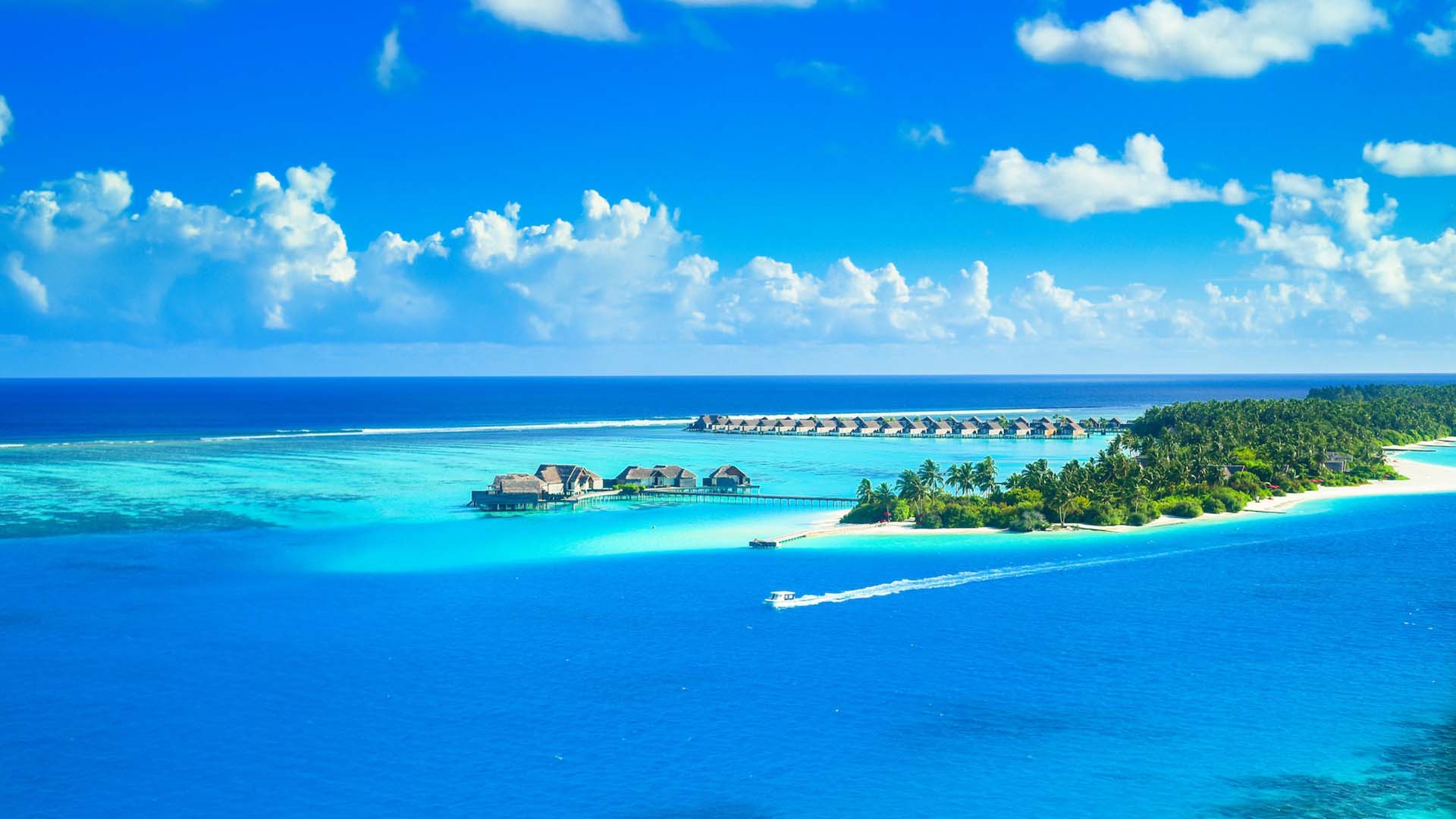|
Getting your Trinity Audio player ready...
|
Have you ever wondered why tourism is such a big deal for many countries and businesses? Why do they invest so much in promoting tourism?
Tourism is one of the world’s largest industries, generating trillions of dollars in revenue each year. It has a significant impact on economies and businesses, creating jobs, generating income, and boosting local economies.
The importance of tourism cannot be overstated. It affects not only the tourism industry but also other sectors such as transportation, hospitality, and retail. In this article, we will explore the economic and business benefits of tourism and why countries must invest in this industry.
Tourism
Tourism is a social, cultural and economic phenomenon which entails the movement of people to countries or places outside their usual environment for personal or business/professional purposes.
Importance of Tourism to Local Economies
Tourism is a crucial contributor to the growth of local economies. A thriving local economy creates opportunities for residents to lead happier, more comfortable lives.
However, every region requires some assistance to achieve its full potential. Communities depend on neighbouring cities, counties, and other areas for economic growth, and tourism plays a vital role in this process, particularly for smaller communities.
Tourism provides several benefits to local economies. It generates new revenue streams by attracting visitors and increasing the amount of money spent in the area. As visitors explore local attractions, they purchase goods and services from local businesses, such as restaurants, hotels, and souvenir shops. This, in turn, creates employment opportunities, which can benefit the residents of the area.
Additionally, tourism can stimulate the development of infrastructure in the area, such as the construction of new hotels, transportation systems, and other amenities. This not only creates jobs but also attracts new businesses, investors, and entrepreneurs, contributing to the economic growth of the region.
Tourism is especially significant for small communities that may have limited resources to grow their local economies.
By attracting visitors, small towns can generate new revenue streams and create new job opportunities. Tourism can also help to promote and preserve local culture, traditions, and heritage, encouraging residents to take pride in their community.
What are the impacts of tourism?
The advantages of tourism extend beyond the creation of billions of dollars and hundreds of millions of jobs and business opportunities. A thriving tourism industry also helps to build infrastructure such as roads, parks, hospitals, schools, and community areas.
Additionally, it assists in the preservation of heritage sites, natural wonders, and precious cultures, creating a platform for people to showcase their cultural traditions and safeguard sacred areas.
By choosing to stay in locally-owned accommodations, shop in artisan markets, take part in traditional festivals and tour with local guides, travellers can have a direct positive impact.
The tourism industry also contributes to protecting the environment and its wildlife, with many tourism businesses offering eco-friendly services and encouraging tourists to respect the lands and communities they visit.
There are many inspiring cases of change, such as former poachers turning into safari guides or gamekeepers, as the income from tourists wanting to see wildlife means that protecting the animals is a far more valuable venture. Tourists can also contribute to the preservation of natural areas by paying entry fees for national parks and making sure to leave only footprints and take only photos.
These positive impacts of the tourism industry are all part of a move towards responsible tourism, where the focus is on having a beneficial effect on the communities visited, protecting wildlife, and caring for the planet.
Reasons Why Tourism Is Important
Tourism is a vital industry that has a significant impact on economies, cultures, and individuals around the world. From boosting local economies to promoting cultural exchange and preserving heritage sites, the benefits of tourism are numerous and far-reaching.
Here are ten reasons why tourism is important:
1. Revenue
Tourism is a significant source of revenue for communities around the world. Visitors who come to explore new places and experience unique activities bring in money that can boost the local economy. This spending occurs in a variety of ways, including dining at restaurants, shopping at local stores, and participating in tours or events.
As a result, businesses of all types and sizes have the potential to earn more income when their community attracts tourists. This influx of money can benefit not only business owners but also employees, who will have more resources to spend within the local economy.
Moreover, the increase in sales tax revenue generated by tourism can fund important infrastructural and environmental projects in the community.
2. Job Creation
Tourism is also an important source of employment for residents. The growth of the tourism industry means more job opportunities for people in various fields, such as hospitality, transportation, and entertainment.
When businesses see an increase in demand for their products and services, they may need to hire more staff to meet the needs of their customers. This job creation can result in lower unemployment rates and a boost in the standard of living for people in the community.
3. Cultural Preservation
Tourism plays a crucial role in preserving culture. This is evident in a few ways. Firstly, tourism provides support to artisans who sell their crafts to visitors. Markets and shops are a significant draw for many tourists interested in purchasing souvenirs for people back home or as a way to remember their trip.
Secondly, tourists often visit cultural sites and attend local music, dance, theatre, and other performances. These activities help sustain intangible culture, which gives regions their unique identity and protects the multiculturalism of our world.
Cultural tourism has been known to help preserve heritage sites and landmarks that might otherwise have been lost. For example, the UNESCO World Heritage List identifies and protects cultural and natural heritage sites of universal significance.
These sites, which include ancient ruins, religious sites, and architectural wonders, draw millions of visitors each year. The income generated by tourism provides resources for maintaining and protecting these sites, ensuring their preservation for future generations.
In addition to preserving tangible cultural heritage, tourism also promotes the continuation of traditional practices and customs. When communities realize that tourists are interested in their culture, they are often more motivated to preserve and celebrate it. This can help prevent cultural practices from being lost to time and modernization.
Furthermore, tourism encourages the development of cultural events and festivals that celebrate the customs and traditions of a community. These events create a sense of pride and community identity, and can also provide opportunities for economic growth.
4. Infrastructure Development
Tourism can also lead to infrastructure development in a community. As more visitors come to an area, the need for amenities like roads, public transportation, and accommodations increases. This demand can spur the construction of new hotels, restaurants, and other tourism-related businesses.
Furthermore, the local government may invest in improving the infrastructure to make the community more attractive to tourists. Such improvements can include the construction of new highways, parks, and public facilities, which can benefit not only tourists but also residents.
5. Improved Quality of Life
Tourism can improve the quality of life for residents. When a community’s economy is bolstered by tourism, residents may enjoy a higher standard of living, with better access to services and amenities.
For example, new businesses may offer more job opportunities and contribute to a more diverse economy. This can lead to better public services, improved educational opportunities, and a stronger sense of community pride.
Additionally, tourists may bring in new ideas, perspectives, and cultures that can enrich the local community.
6. Job Opportunities
Tourism is not only beneficial for businesses and the economy but also for the people who live in the community. One of the significant advantages is the job opportunities that arise from a thriving tourism industry.
As more tourists visit a community, new businesses and service offerings emerge, creating job openings. Industries such as hospitality, food service, and travel produce a lot of new job opportunities. For example, hotels, restaurants, and tour companies hire staff to accommodate and entertain visitors.
Moreover, tourism enables locals to create new businesses or expand existing ones, which opens up new entrepreneurial opportunities. Services like Airbnb empower residents to earn revenue by renting out their homes or apartments to tourists seeking comfortable and authentic local experiences.
7. Tourism impacts GDP growth (and decline)
Tourism has a significant impact on a country’s GDP. In 2019, the direct contribution of travel and tourism accounted for 3.3% of the world’s total GDP, representing a small rise since 2018.
However, the COVID-19 pandemic in 2020 resulted in a significant decline in tourism’s contribution to the GDP, dropping by almost 50% according to the World Travel and Tourism Council Report.
Tourism’s contribution to a country’s GDP is closely linked to the number of jobs it creates. When tourism flourishes, businesses thrive, which leads to more employment opportunities. As a result, more people have money to spend within their local economy. This increase in sales tax revenue funds important infrastructural and environmental endeavours in the community.
On the other hand, a decline in tourism can result in a decrease in revenue, which can negatively impact the GDP. The decline can also result in fewer employment opportunities, making it harder for residents to make a living.
The pandemic highlighted the significant impact that tourism has on GDP growth (and decline) and the importance of supporting the industry during difficult times.
8. Tourism supports low-income countries
Tourism is a crucial source of revenue for many of the world’s lowest-income countries. In 2015, 48 of the lower-income and lower-middle-income countries experienced an increase in tourist arrivals, resulting in approximately $21 billion (USD) in revenue.
For Small Island Developing States (SIDS) across the globe, tourism accounts for 30% of their export earnings. In the Pacific island nation of Palau, tourism is responsible for a staggering 38% of GDP.
For these countries, tourism plays a vital role in their economic growth and development. The revenue generated from tourism can be used to fund important initiatives such as infrastructure improvements, healthcare, education, and conservation efforts.
Furthermore, tourism creates employment opportunities for residents, providing them with a means to support their families and contribute to their communities.
9. Tourism is good for rural areas
The concept of “rural tourism” has gained popularity as urban tourists crave a break from busy city life and seek out more natural environments. They look for unique experiences such as staying on a farm, going for days-long hikes with guides, rock climbing, and more.
These visits create job opportunities for people residing in rural areas. Moreover, they highlight the value of preserving and investing in these regions.
Tourism in rural areas also offers tourists an opportunity to learn more about an area in its natural state and form a deeper connection with the local community. It encourages people to explore local cultural and historical attractions while supporting small businesses and community development.
The development of rural tourism can also bring a sense of pride and identity to local communities by showcasing the unique aspects of their region.
10. Tourism encourages conservation
Tourism can encourage conservation efforts in various ways. First, nature-based tourism, such as scuba diving, hiking, camping, and wildlife watching, is popular and motivates authorities to protect natural areas like old-growth forests, lakes, coastlines, state parks, and gardens.
A case in point is Costa Rica, which recognized the potential of conservation in attracting tourists. The country reversed deforestation trends and doubled its forest cover in just three decades. This boosted tourism, which generated approximately $6.14 billion in 2019.
Tourism also creates awareness of the importance of conservation among tourists, business owners, and communities. Visitors learn about the natural environment and ecosystems, and how they can contribute to preserving them. This education can inspire individuals to become conservationists or support conservation efforts.
Moreover, tourism can provide financial support for conservation initiatives. For instance, visitors pay entry fees to national parks, which generate revenue that authorities can use for conservation programs. Some businesses in the tourism industry also donate a portion of their profits to conservation organizations or support local community conservation projects.
Lastly, tourism can promote sustainable practices that reduce environmental impact. Many tourism businesses now offer eco-friendly services and encourage tourists to respect local cultures and the environment. Such initiatives can help conserve resources and preserve the natural environment for future generations.





